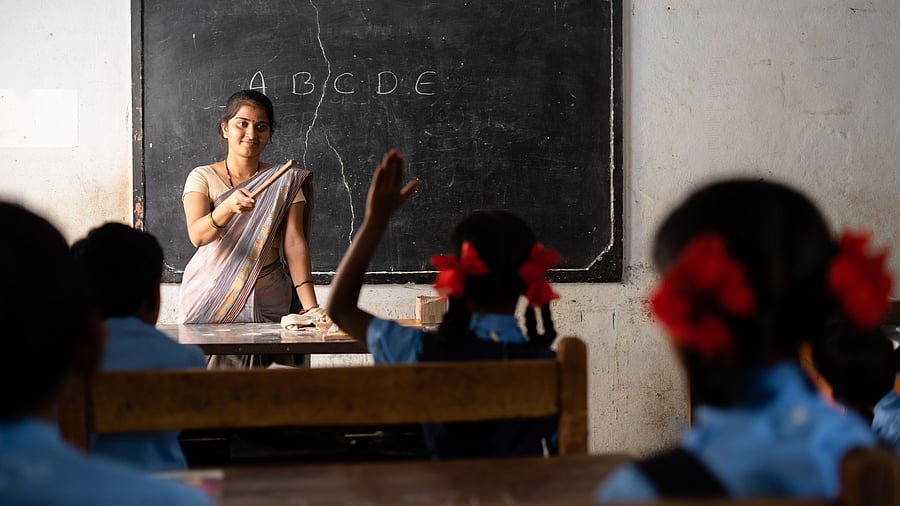
Credit: iStock Photo
Student engagement in the classroom is a critical factor for effective teaching and learning. It refers to students' level of interest, participation, and investment in their learning experiences. When students are actively engaged, they are more likely to understand and retain information, develop critical thinking skills, and perform better academically.
Pedagogical tools are strategies, techniques, and methods that teachers use to enhance learning and promote student engagement in the classroom. Here are some pedagogical tools that can help enhance student engagement in the class:
Inquiry-based learning: This pedagogical tool is a student-centred approach that encourages students to ask questions, investigate, and explore topics that interest them. Teachers can use this tool by presenting real-world problems or scenarios that students can explore and solve through research, discussion, and experimentation.
Technology Integration: Technology can engage students in the learning process. Teachers can incorporate various technological tools into their lessons, such as interactive whiteboards, tablets, videos, or educational apps. These tools can make learning more interactive, collaborative, and engaging.
Quiz: They can be used as a formative assessment tool to provide feedback to students and help them identify areas where they need to improve. They can also be used as a summative assessment tool to evaluate student learning outcomes. Quizzes can be created in different formats, such as multiple-choice, true/false, fill-in-the-blank, or short-answer questions. They can reinforce learning, review material, or introduce new concepts.
Flashcards: Flashcards are an effective tool for memorization and recall. They are handy for learning vocabulary, formulas, and concepts. Flashcards can be created using physical cards or digital tools like Quizlet or Anki. Flashcards are especially helpful for visual learners, as they can use images and diagrams to help them remember information.
Case studies: Case studies are a powerful pedagogical tool for promoting critical thinking and problem-solving skills. They provide students with real-world scenarios and allow them to apply their knowledge to practical situations. Case studies can be used in many subjects and disciplines, from business and economics to science and engineering.
Project-based learning: Project-based learning is a pedagogical tool that involves students working on a project that requires them to apply what they have learned in a real-world context. This can be done individually or in groups, ranging from short-term to long-term projects. Projects can help students develop critical thinking, problem-solving, and collaboration skills.
Cooperative learning: This pedagogical tool involves students working in small groups to achieve a common goal. Cooperative learning can help students develop teamwork and collaboration skills, as well as promote engagement and motivation.
Classroom discussion: Classroom discussions are a pedagogical tool that can help students develop critical thinking skills, enhance communication skills, and promote engagement. Teachers can use various strategies to facilitate classroom discussions, such as asking open-ended questions, using probing questions, and using wait time to give students time to reflect.
Active learning: Active learning is a pedagogical tool that involves students actively participating in the learning process. This can be done through various activities such as role-playing, simulations, experiments, or gamification. Active learning can promote engagement, motivation, and deeper learning.
Digital storytelling: Digital stories are short films (under 5 minutes) that present a central topic, idea, or conflict through images, narration, and sound. With simple and accessible video creation programs like iMovie and Wevideo, this format has become an increasingly popular communication genre.
Simulation: It is a technique used to model and replicate real-world processes, systems, or situations in a controlled and artificial environment. The purpose is to imitate the behaviour of a real-world system or process to gain insights, test hypotheses, make predictions, or train individuals without having to interact with the actual physical system.
Student engagement is a dynamic and multifaceted aspect of education. Teachers can use various pedagogical tools to enhance student engagement. The key is to choose the appropriate tools based on each student's learning goals and needs to engage students and keep them motivated and successful.